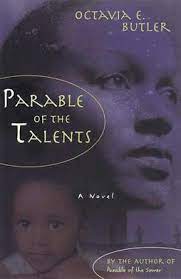 SOUNDTRACK: SAMPA THE GREAT-Tiny Desk (Home) Concert #173 (February 23, 2021).
SOUNDTRACK: SAMPA THE GREAT-Tiny Desk (Home) Concert #173 (February 23, 2021).
 I thought that Sampa was actually Sammus, the indie rapper named after the character in Metroid. So I was a little bummed to find out I had the wrong Sam… rapper. But I quickly came over to Sampa’s style.
I thought that Sampa was actually Sammus, the indie rapper named after the character in Metroid. So I was a little bummed to find out I had the wrong Sam… rapper. But I quickly came over to Sampa’s style.
Sampa Tembo is better known as Sampa The Great, an understated title. In her Tiny Desk (home) concert, the poet, rapper and singer-songwriter delivers evidence that it’s more like Sampa the Greatest. Initially raised in Botswana, Sampa moved to Australia as a young adult and established herself in Sydney’s hip-hop scene. There, she released two mixtapes, 2015’s The Great Mixtape and 2017’s award-winning Birds and the BEE9, all the while generating buzz. She had been based in Melbourne for the last four years, but the next chapter of her musical journey will find her at home in Zambia.
She plays four tracks and her live band is really solid. She opens with “Rhymes To The East” which features a nice guitar riff by Samuel Masta. I like the way the backing singers (l-r: Joy Tusankine Namwila, Mwanje Tembo, Tio Nason) sing the end of the rapped lines.
When Sampa really starts flowing her voice is great–a rough gravelly cadence with a Southern African/Australian accent. It’s especially cool when she introduces the third verse with a snarl
Rhymes beast mother fucker
Tembo from the east put the beast in a trucker
Timbuktu, as I question all the loyalty
Build a big wall when you stole all of the royalties
The end of the song is really catchy, too.
The next three are from her 2019 album The Return.
“Mwana” opens with a drum solo Kasonde “Tek1” Sunkutu. The song is mostly sung by the backing singers. Then Sampa starts her flow. Musically this song is much more spare with gentle keyboards Lazarus “Lalo” Zulu playing around the drums.
As she introduces the band, they jam, with some funky bass from Mapalo “Mapskeys” Mapalo which leads into an improv that sounds like an island fun.
“Freedom” is up next.
Sampa Tembo is in Lusaka, Zambia, her landlocked African home country. [She says] “Freedom is what we feel when we perform. And freedom is what the world is in need of right now. In this pandemic it feels like we all need a sense of freedom.”
“Freedom” features some terrific backing vocals. The end has a rocking jam as the singers all give up whooos and Masta plays a ripping solo.
When the camera is in full frame you can see that Sampa’s dress has a really long train which covers almost the entire floor (no wonder she sits through the whole set).
The set ends with “Final Form,” my favorite song of the set. It’s got a big, heavy noisy riff with thumping bass and wailing guitars. Her delivery is raw and raspy and really affecting.
The end is particularly cool as the band rocks out punctuating along and singing “Black power!” “Louder!” “Black power!”
Sampa is pretty great, indeed.
[READ: April 12, 2021] Parable of the Talents [2032]
Parable of the Sower ended on a vaguely optimistic note: Lauren felt that they were ready to set up Acorn, the home of her Earthseed community. Bankole thought there was no chance it would work. But this is Lauren’s story, so we’ll assume that the story is tipped in her favor somewhat.
Plus, there’s a sequel, so things must work out reasonably well, right?
Well, surprise!
Parable of the Talents opens up with the news that Lauren is dead.
She is mostly called Olamina during this book because Bankole “doesn’t like my first name, so he ignores it. That’s fair. I didn’t like his first name either. It’s Taylor, by the way and I ignore it” (122).
This book is narrated by Olamina and Bankole’s child–unspecified gender and age in the Prologue, although by the end of this week’s reading we can assume the writer is their daughter [Bankole wants her named Beryl and Olamina wants her named almost anything that isn’t Beryl–“such an old fashioned name” (122). The narrator later says something about high school, so it must be around 2050.
The child shares Olamina’s diary entries, but her basic attitude is that she hates her mother and thinks well of her father and wishes she knew him.
The book opens with this narrator saying “they’ll make a god of her” and the continues with something surprising about that
I think that would please her, if she could know about it. In spite of all her protests and denials she’s always needed devoted, obedient follower–disciples–who would listen to her and believe everything she told them. and she needed large events to manipulate. All gods seem to need these things. (7)
I never got the sense that Lauren wanted to be a god. But maybe Olamina does.
She also tells us that Lauren’s middle name “Oya” is the name of a Nigerian Orisha–goddess f the Yoruba people (goddes of the wind, fire, and death, more bringers of great change (50).
Butler wrote this book five years after the Sower. As I read Talent, I wondered what the intent of this story was. Had she planned all along to have a follower (child or otherwise) criticize Earthseed? Had five years of thinking about Earthseed made her question the validity of Lauren’s ideas? I don’t know anything about Butler, about whether she “agreed” with Lauren’s ideas or not. I don’t have anything besides textual evidence to know how she felt about religion in general. So was this book a commentary on her own ideas/ideals from five years earlier? Or is this just interesting storytelling by having a new protagonist dispute the doctrine of the previous protagonist. Especially if the bulk of this book is made up of Olamina’s diary entries (just like the first book was).
That’s right, even though the book is set after Olamina has died, the book so far is primarily her own diary entries from 2032, By the end of 2032, she is pregnant with, presumably, the person who is narrating this book and criticizing Olamina’s ideas. (more…)
Read Full Post »












